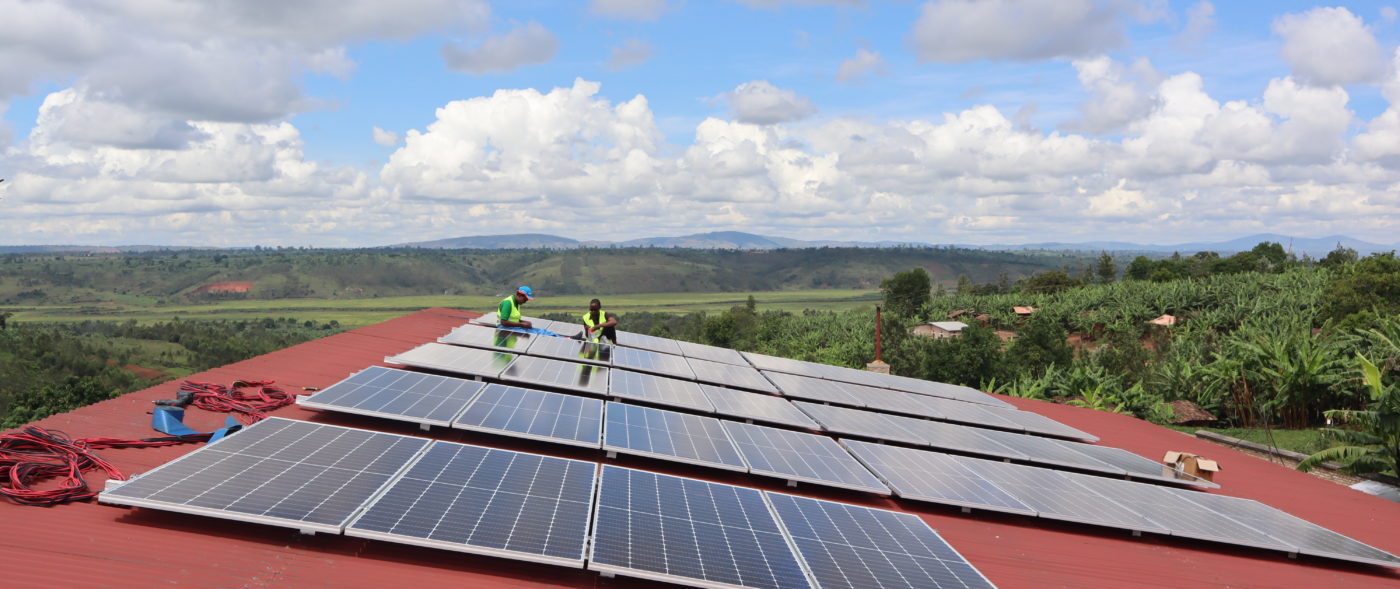Ndava maternal and child health center

The Ndava maternal and child health center provides health care mainly to women and children under 5 years of age, covering the necessary services during pregnancy, before and after childbirth, and during the first years of life. In addition, it also provides outpatient services to people suffering from tuberculosis, malaria, HIV, among others.
- NGO: Asociación Solidaria Universitaria (ASU) (web)
- Service: 24/7 access to electricity to the center
- PV Installation: 36 panels (17.28 KWp)
- Social Impact: Improve maternal and child health and health care by improving the center's service.
- Beneficiaries: 64,855 inhabitants of the Muhanga region.
Burundi is one of the poorest countries in the world, with alarming levels of malnutrition and famine, 67% of its population lives in poverty. It ranks 185 out of 189 on the Human Development Index, and its GDP per capita is only $260. Life expectancy at birth is 60.8 years, almost 23 years lower than in Spain. Burundi's fertility rate is high at 6.1 children, but the infant mortality rate is also very high, due to malnutrition and lack of health care during the first years of life.
Ndava is a small rural village in Muhanga commune, Kayanza province, Burundi. Muhanga is a mountainous area with 6 hills, home to about 65,000 people. It is isolated due to the lack of good communication links in Burundi, forcing the community to rely on its own resources.
The main objective of the Ndava center is to improve maternal and child health and health care. It attends an average of 45 births per month, 2,000 outpatient visits, and employs 14 people. In the last year, almost 20,000 people have been attended. The center offers the following services: delivery room, surgery, prenatal consultation, pediatric consultation, adult consultation, laboratory, pharmacy, an admissions room for both women and babies, dilation room, bathrooms and kitchen.
For this, it is vital to have reliable electricity, with sufficient power and without outages. The center has no connection to the electricity grid, and was using only a generator that was used occasionally, given the high price of diesel. As a result, the possibilities of services (e.g., the use of incubators) and the quality of these services were highly impaired. In addition, once it got dark (sunlight hours in spring are from 6am to 6pm), it was not possible to work properly, as there was no light to do so.
Thanks to this project, the center has light 24 hours a day, 7 days a week. The solar system covers the center's comprehensive care and the equipment they now have. From now on, both the center's consultations, laboratory tests, and deliveries are electrically powered. The quality of services has improved, such as night deliveries. The installed power allows the center to provide other more advanced services: it will be able to expand some of these services, with other services that were not provided until now. In addition, expenses related to the generator, such as the purchase of diesel and its maintenance, will be reduced.
From the Eki Foundation we would like to give special thanks, among others, to the Anesvad Foundation (webpage)
for making this possible. This project has been funded by the Anesvad Solidarity and Cooperation Awards, Edition VI 2021.
We would also like to thank Oskar Epelde, who left us this video after his visit to the center in Ndava:
Thanks to ASU ong for the images provided.
